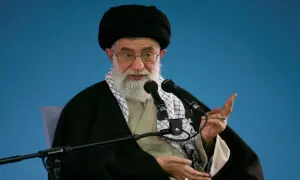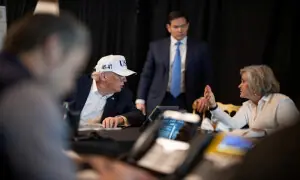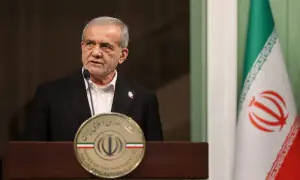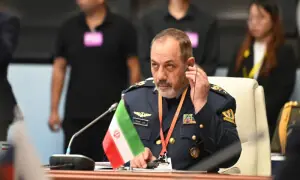Chinese Foreign Minister Qin Gang dismissed after weeks of disappearance
3 min readChinese Foreign Minister Qin Gang was removed from his post after just seven months in the job on Tuesday, bringing an end to weeks of confusion after the 57-year-old once seen as close to President Xi Jinping disappeared from public view.
Qin, 57, became one of the country’s youngest foreign ministers on his appointment in December 2022 after a brief stint as U.S. ambassador, enjoying a meteoric rise to the top that analysts partly attributed to his closeness to Xi.
He was replaced by his predecessor, Wang Yi, 69.
Born in the northern city of Tianjin in 1966, Qin studied International Politics at one of China’s most prestigious schools for aspiring diplomats, the University of International Relations in Beijing.
After graduating, Qin entered the diplomatic service, working in several jobs at the foreign ministry as well as postings at the Chinese Embassy in Britain.
Qin was twice foreign ministry spokesman, between 2006 and 2014, and chief protocol officer between 2014 and 2018, overseeing many of Xi’s interactions with foreign leaders.
As ministry spokesman, he stood out for being one of the first diplomats to speak aggressively in defence of China’s increasingly assertive foreign policy, a style that became known as “wolf warrior” diplomacy.
But he also displayed willingness to work with the United States, declaring upon his arrival in Washington as ambassador in July 2021, after a period of unusual public vitriol between U.S. and Chinese officials, that relations held “great opportunities and potential”.
Relations between the two big powers did not markedly improve during his time as ambassador, or afterwards, however. The two sides have been often at odds over issues including trade, technology, and the self-ruled, democratic island of Taiwan, which Beijing claims and Washington supports.
Qin, who analysts said was likely to have been appointed foreign minister to help stabilise relations with the U.S., held a 5-1/2 hour meeting and a dinner with U.S. Secretary of State Antony Blinken in June in talks that both sides called candid and constructive.
A few days later, on June 25, he held talks with officials from Sri Lanka, Russia and Vietnam in Beijing but then began an unexplained public absence.
His ministry said on July 11 he was unable to attend a meeting in Indonesia for unspecified “health reasons”. It declined any further comment on his status, creating an information vacuum in which rumours swirled.
Wang, who was promoted to the politburo of the Chinese Communist Party, one of China’s top leadership bodies, filled in for him during his absence.
Qin, who is married with one son, visited various countries as foreign minister including several in Africa in January and in Europe in May where he pushed China’s call for a ceasefire in Ukraine, a tough sell given that China has been criticised for not condemning Russia’s invasion.
After becoming foreign minister, Qin’s comments on hot button issues such as Taiwan and China’s relations with Russia did not diverge in any significant way from those of his predecessor.
In his first comments as foreign minister, Qin said in solving challenges common to all mankind, China’s diplomacy would offer “Chinese wisdom, Chinese initiatives and Chinese strength”.
In an essay published in American bi-monthly magazine the National Interest late last year, Qin gave an overview of China’s foreign policy and reiterated that China-U.S. relations were not a “zero-sum game” with one side gaining at the expense of the other.
For the latest news, follow us on Twitter @Aaj_Urdu. We are also on Facebook, Instagram and YouTube.
























Comments are closed on this story.